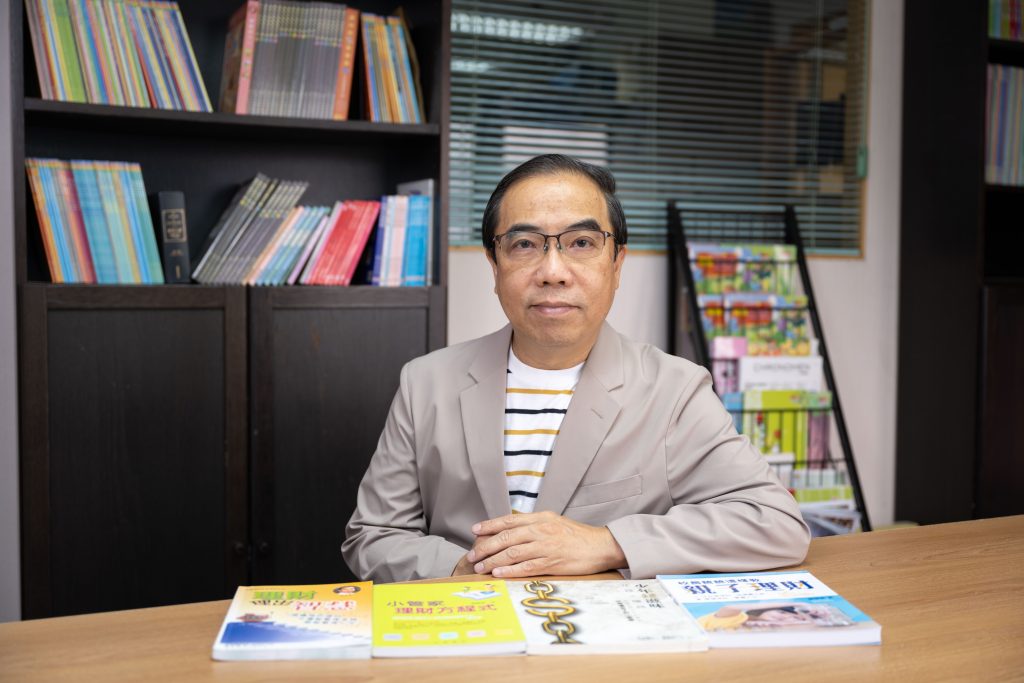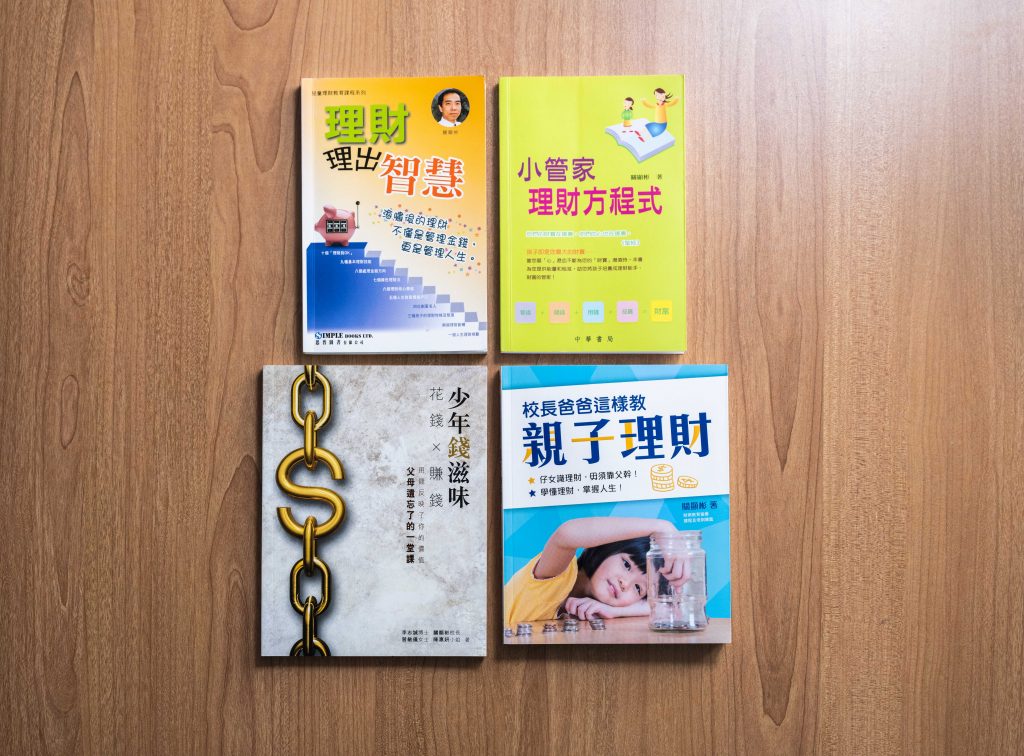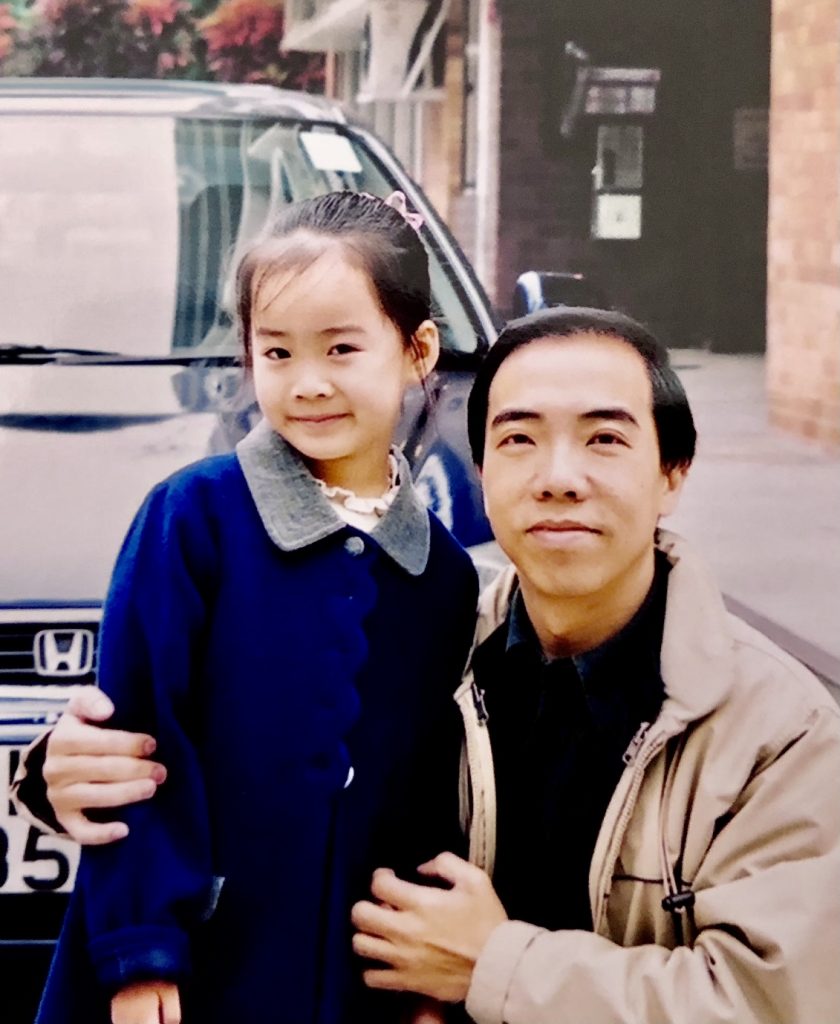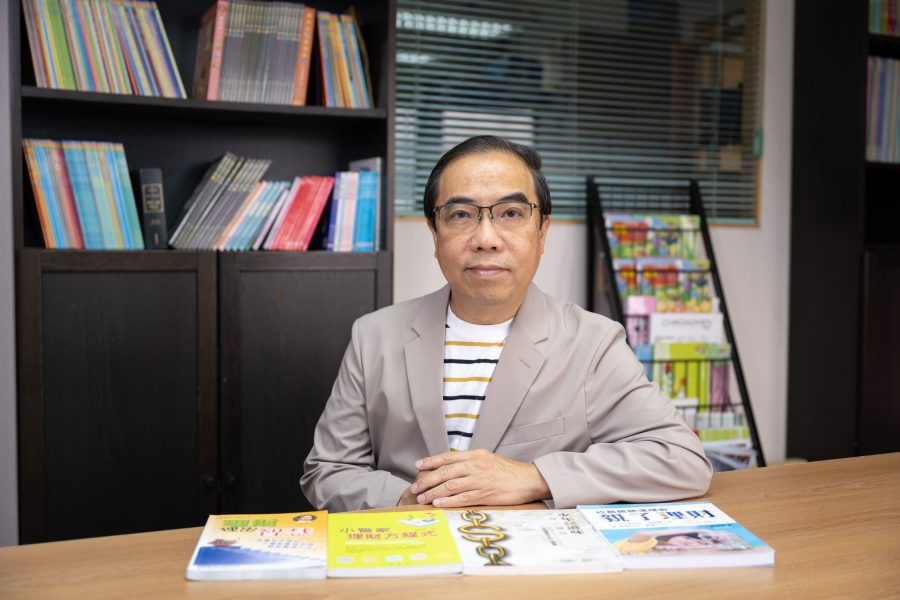Intelligence Quotient (IQ), Emotional Quotient (EQ) and Adversity Quotient (AQ) are widely recognized as essential skills of the future. Yet, Financial Quotient (FQ) has not been included in mainstream education. In Hong Kong, Principal Johnny Kwan has been a pioneer in nurturing FQ in future generations. If you still wonder why it is essential for children to take training in financial management, try to answer the questions below: (1) What would you do when an eight-year-old child requests to have the same iPhone 11 as his parents? (2) How many pairs of shoes should a primary school student own? (3) Should children’s good behaviour be rewarded with money? If you have doubts about these questions, please read this interview. After all, children’s FQ is founded on parents’ attitudes and principles towards money.

When Johnny Kwan was a primary school principal, he was troubled by the omission of financial education in the school curricula, especially after witnessing the impact of the 2008 global financial tsunami on many families. “A lot of children and teenagers lack financial literacy, and parents and teachers have no idea how to teach it. Only in Form Three or Four do students learn about individual financial planning in Liberal Studies. It would be too late by that time as they have already been exposed to money for many years. As a principal, I noticed this gap in the curriculum and was keen to look for solutions as to how we should introduce FQ education to students. The education department in many developed countries have included financial education into their curricula after the financial tsunami. Hong Kong, an international financial centre, however, still does not have a comprehensive curriculum of FQ education. After thorough research, I decided to step down from my role as principal and devote myself to developing and promoting FQ education.”
Adults, too, sometimes lack sufficient knowledge in wealth management. Principal Kwan says, “Financial illiteracy is inherited. We often describe Hong Kong as a capitalist city founded on wealth from three generations ago when our economy took off. Yet, it has become common for our wealth to be depleted by the second, or at most, the third generation. Hong Kongers today are generally wealthy, but can future generations enjoy what we have cumulated? People in the 50s to 70s earned money via hard work and were conscious with retaining their money by saving. Nowadays, people aspire to quick money via speculation and opportunities. Since Hong Kong lacks natural resources, we rely massively on the global economy. Will the next generation be able to retain money like we do? I always tell parents, ‘You must train the next generation to manage their money carefully! Or else, they might spend all your hard-earned money within a day.’”

Why can parents own an iPhone 11 but children cannot?
Principal Kwan points out that the challenge our future generations may face is not the lack of money nor knowledge as the age of 5G technology prevails, but the ability to sustain wealth and the values of legacy. “Our society is driven by materialism and capitalism. Even parents have many misperceptions: one couple told me that their eight-year-old son demanded an iPhone 11 just like them. When the parents refused, he argued, ‘We all live in the same home and eat the same food. Why can’t I have the same model of phone as you?’ The parents were speechless: they did not want to set a precedent for similar demands in the future but also could not refute with a reasonable explanation. Technological advancements have improved our quality of life and bridged the gap between generations. When both parents and children live an abundant lifestyle, children are given an illusion that they are entitled to the same material goods just because they share the same roof. In reality, however, the two generations should enjoy different luxuries. If children owned an iPhone 11 today, what would their life be like in the future? Parents can tell children, ‘Mum and Dad can make a living and provide for you now. We enjoy this lifestyle because we work hard to accomplish our dreams. However, you are not able to make a living nor manage your money yet, therefore you cannot enjoy the same things as we do. You will be able to do so when you have your own money and skillsets to manage your wealth.’ Before refuting children’s demands, parents must convince themselves that children are not capable of owning an iPhone 11, and take this as an opportunity to introduce the idea of money management. Experts have pointed out that the more a child is provided for, the less capable he/she will become, as his/her needs and desires are already served on a silver platter without any need for hard work. Many parents may have led children into an illusion of fake wealth and fake happiness with a seemingly abundant lifestyle. They do not, however, teach their children the effort and capabilities required to reach that stage. Parents must show children the reality of life before allowing them to enjoy the corresponding luxuries.”
We only need four pairs of shoes
Principal Kwan started giving his daughter pocket money when she was in Primary One to teach her financial management. Principal Kwan paid every time they went out to eat as a family; but one time, his daughter took the bill to check the amount. When they got home, she took 30 dollars from her piggy bank, slipped it in her wallet and said, “I know how much I need to have on me now.” That was when Principal Kwan realized that his daughter needed to know the cost of a meal to estimate the amount of money she should carry with her. Parents should instill in children a sensitivity towards numbers, the differences between various lifestyles and how much financial support parents can give them. To introduce the concepts of “need” and “want”, Principal Kwan taught his daughter that she only needed four pairs of shoes – a pair of slippers at home, a pair of leather shoes and sneakers for school, and a pair for going out. This set a standard for “necessity”. “She can buy a fifth or sixth pair of shoes, but she needs to realize that she has surpassed her basic needs.”

Money as reward?
Some parents like to reward children with money when they earn good grades or do chores at home. Is this the right approach? Principal Kwan answered, “Do not bond with children via material means. Similarly, good grades or behaviour should not be rewarded with money. Schoolwork is a child’s responsibility. Money becomes an external motivation when it is used to encourage or reward children. Yet, internal motivation is what makes children continue to work hard. When they struggle with schoolwork, you can tell them, ‘I understand that studying is difficult, but I will overcome it with you.’ If you still want to reward children, consider the following: (1) Stick to small gifts under 20 or 30 dollars. Children will cherish even a cup of ice cream if it is something out of their daily routine. (2) Consider book coupons or other educational items for older children. (3) I hope children can develop goals and dreams of their own, which is why I would only offer going to Disneyland as quality family time when my children reach the goals that I set for them. Similarly, doing chores is our responsibility in a family and should not be rewarded with money. I encourage parents to establish ‘chores sets’: children have to complete several self-care tasks starting at four or five years old; when they reach six or seven years old, they can start managing money on top of their designated chores. Rather than attaching each duty with a price tag, parents will give pocket money to their children if they are able to finish the entire ‘chores sets’. The message that the parents are delivering is that since the children are responsible enough to finish the chore tasks they are given, it also implies that they are mature enough to manage their own money and are therefore entitled to start enjoying financial freedom.”

The core of FQ is “planning”. Principal Kwan explains, “Spending and saving money both start with planning. Provide too much, and children will fail to see the need to save money as parents have already helped them reach their goals. I understand that sometimes parents want to make children happy through material goods, but this actually slumps their opportunity to grow. If children really want something, we should encourage them to save money. Having a dream and saving bit by bit until they achieve what they want is a big accomplishment in life.” Principal Kwan’s FQ education introduces the concepts of 3S – Saving, Spending, Sharing. Please stay tuned for his seminar on financial education for children to be held on AIA Foundation Online Wellness Playground (AIAF-wellness.org/Events) for free on 22nd August at 9pm.~ Helena Hui

